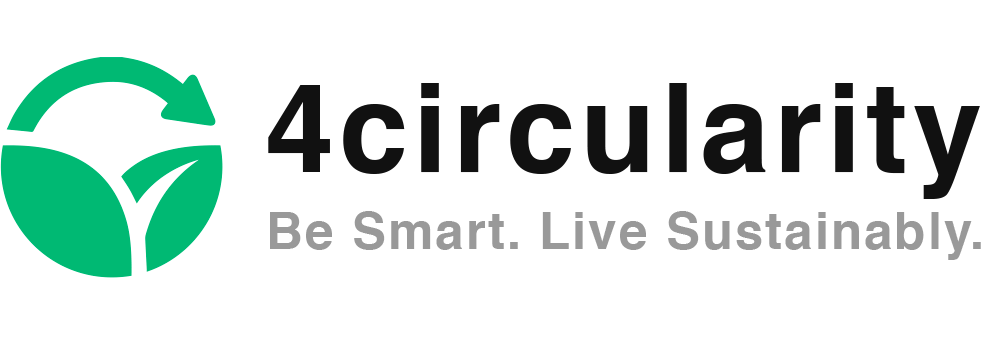Social impact has been seen for a long time as a choice for companies to embed in their long-term strategies. However, today, incorporating social impact to a business sustainability strategy has become imperative.
Social inclusion, human rights, gender equality, diversity and discrimination are issues that are highly visible in media and politics on a daily basis. Social movements of the late 2010s, such as #MeToo and Black Lives Matter, opened new wave of discussions, online, about issues that has for long been fallen silent. These social movements concerned partly also businesses’ role in operating in a socially responsible manner, ensuring diversity and gender equalities at the workplace, as well as zero tolerance for harassment and discrimination.
As a consequence, businesses cannot ignore social impact without negative consequence in reputation, attractiveness as an employer for future talents and engaging customers and investors who deeply care for the company’s culture and values.
Before I go more in detail to explain what social impact is, I would like to remind you about what is a sustainable business and how social impact is associated with it.
A Sustainable Business Model
A sustainable business is one that is concerned about economic, social and environment impacts that are associated with their current and future operations while ensuring a safe, healthy and prosperous life for our future generations. The world and life goes hand in hand. Without the world there wouldn’t be life. A sustainable business contributes to regenerating a world where humans and nature can thrive.
“Focus on where you are going, not where you have been.”
Book: The Future We Choose: Surviving the Climate Crisis, Figueres, C. & Rivett-Carnac, T. (2020)
Businesses who practice sustainability make plans in the future with long-term strategies and rethinking their business practices by switching from linear business model to circular business model. A circular business model maintains the value of products, materials and waste by reusing, reproducing, repairing and efficiently recycling them so that waste and materials loss is minimized. A sustainable business improves the company image and reputation, reduces costs, and helps to boost local economy by leading the way to a more healthier and resilient local communities.
A sustainable business breaths and lives Systems thinking, a company-wide understanding that everything is somehow connected and nothing exists in isolation. Each part of the business contributes to the overall sustainability of the company. A sustainable business strives for positive social impact, environment impact and economic (governance) impact. Consequently a sustainable business aims at contributing positively in its value chain people, planet and profit. The people, planet and profit is also called as the triple bottom line or the widely used ESG impacts which comes from the words Environment, Social and Governance.
Business practices must be rethought from products and services, business processes and supply chain aspects to become more sustainable and resilient to survive in the long-term.
Social impact definition

Social impact consists of the performance of a company or organization relative to societies and social justice. Social impact of a company can be divided into internal and external practices. In ESG (Environment, Social, Governance) framework the “S” represents “Social” that stands for the socially responsible and ethical operations of a company throughout its supply chain.
The social impact of a company is closely linked with business ethics, impact on communities where the company operates, impact on human rights and labor relations and the way employees are trained, promoted and managed. The social impact covers a vast area of issues from ensuring gender equality to zero tolerance of sexual harassment and all forms of discrimination. The purpose of social responsibility is a mutual effort to create an environment of respect in the workplace, in the supply chain and in the community where the company is operating.
Internally, social impact of a business often refers to practices related to employees and employment with the business. These include ensuring diversity in recruiting new talents, complying with country specific labor rights and laws, and not exploiting them, because it is the right thing to do. In addition, the internal social impact refers to increasing women in leadership positions and aiming to gender equality in the organization.
Externally, a sustainable business is responsible that the companies in its supply chain own the same culture and the same values as they do. Therefore, the business wants to make sure the materials and products they purchase are sustainably and ethically produced. In other words, a socially responsible business will make sure that all pieces of material are not produced using child labor or produced in unsuitable working conditions that violate any human right laws.
Social impact of a sustainable business and its supply chain include (at least) the following:
- Human rights (e.g. right to work, increasing jobs)
- Gender equality (e.g. women and girls empowerment, ensuring women in leadership positions, same salary from the same job)
- Employee social well-being (e.g. health care, work-life balance, happiness in the job)
- Zero tolerance of sexual harassment and bullying at workplace
- Gender, age, race, minorities and job contract related discrimination
- Labor rights and laws (zero tolerance of child labor, respecting minimum wage and working hours and holidays)
- Working conditions and safety (e.g. providing remote work, zero tolerance for accidents)
- Diversity in recruiting new talents
- Open communication on compensation and employee practices (e.g. bonus system)
- Regular performance reviews
- Information technology and communication equipment (e.g. providing adequate technical equipment for employees to thrive in the work)
- Sustainability training and education
- Impacts on the local communities (e.g. public and social services sector)
- Philanthropy on social projects
Social sustainability in business

A sustainable business should take into consideration the social impact its business operations have on its direct employees, people employed throughout the supply chain and in the community. If a company becomes aware of any abuse of human rights in its supply chain, for example, it can then choose to either try to fix the problem with the supplier or to stop working with the supplier right away. Many companies create Code of Conduct agreements with their suppliers in order to control and verify their liabilities to work with the company according to shared values.
Social sustainability in business is as important as decreasing the carbon footprint or changing to using renewable energy instead of carbon based energy. Businesses who practice positive social responsibility benefit from it in many ways. For example, employee diversity can improve efficiency of an entire company because it accelerates creativity and improve problem solving. Moreover, greater setting of experiences, diversity, cultures and values generates more innovativeness and creative power.
Let’s think about the climate crisis and the actions that have led us to where we are right now. From social impact point of view, one cause is gender inequality. Today, 130 million girls cannot enter the schooling system due to specific cultural and religious reasons. If 100% of girls enrolled to the educational system worldwide, the global population in 2050 would lessen by 843 million people. Ensuring education for all girls is in a crucial role in empowering them to make their own choices in life.
Let’s now take this to the sustainable business world. Recent research says that companies that have women in leadership positions are more likely to invest in renewable energy and innovate in tools and products that help tackling the climate crisis. In addition, women in investment companies are more likely to decide whether to invest in a company, based on how they treat their employees and the environment.
Social impact investing

Not investing in sustainability today is economic madness.
Measuring social impact is not an easy task and that is why its importance has been neglected for long in companies and organizations. However, the social impact is a versatile area and it increasingly attracts the attention of investors. Businesses who commit in maximizing their social impact are most likely to get more sustainable investors interested in them. Social impact investments are done to maximize positive social impact of the company and to aim at financial return. To know more about the importance of measuring sustainability performance, read my recent blog post here.
To end, I want to highlight the importance of a clear and simple vision for any sustainable business. Similarly as environmental impact or economic impact, the social impact as a part of business sustainability strategy is always understood with a long-term mindset. What a company really should achieve with its social, environmental and governance impact is equally greater good for people and planet.
“The vision was, and still is, a regenerative world where humans and nature can thrive. Confusing vision with goals is easy. A goal is a specific target that we set on the way to achieving a vision. It includes the strategies, and tactics, we use in moving towards the vision. Vision inspires us to get through challenging times.”
Book: The Future We Choose: Surviving the Climate Crisis, Figueres, C. & Rivett-Carnac, T. (2020)
Sources:
The Future We Choose: Surviving the Climate Crisis, Figueres, C. & Rivett-Carnac, T. (2020)
Has Sexual Harassment at Work Decreased Since #MeToo?, Harvard Business Review, July 18, 2019
A Primer on Sustainable Business, v. 1.0


2 Replies to “What is Social Impact?”